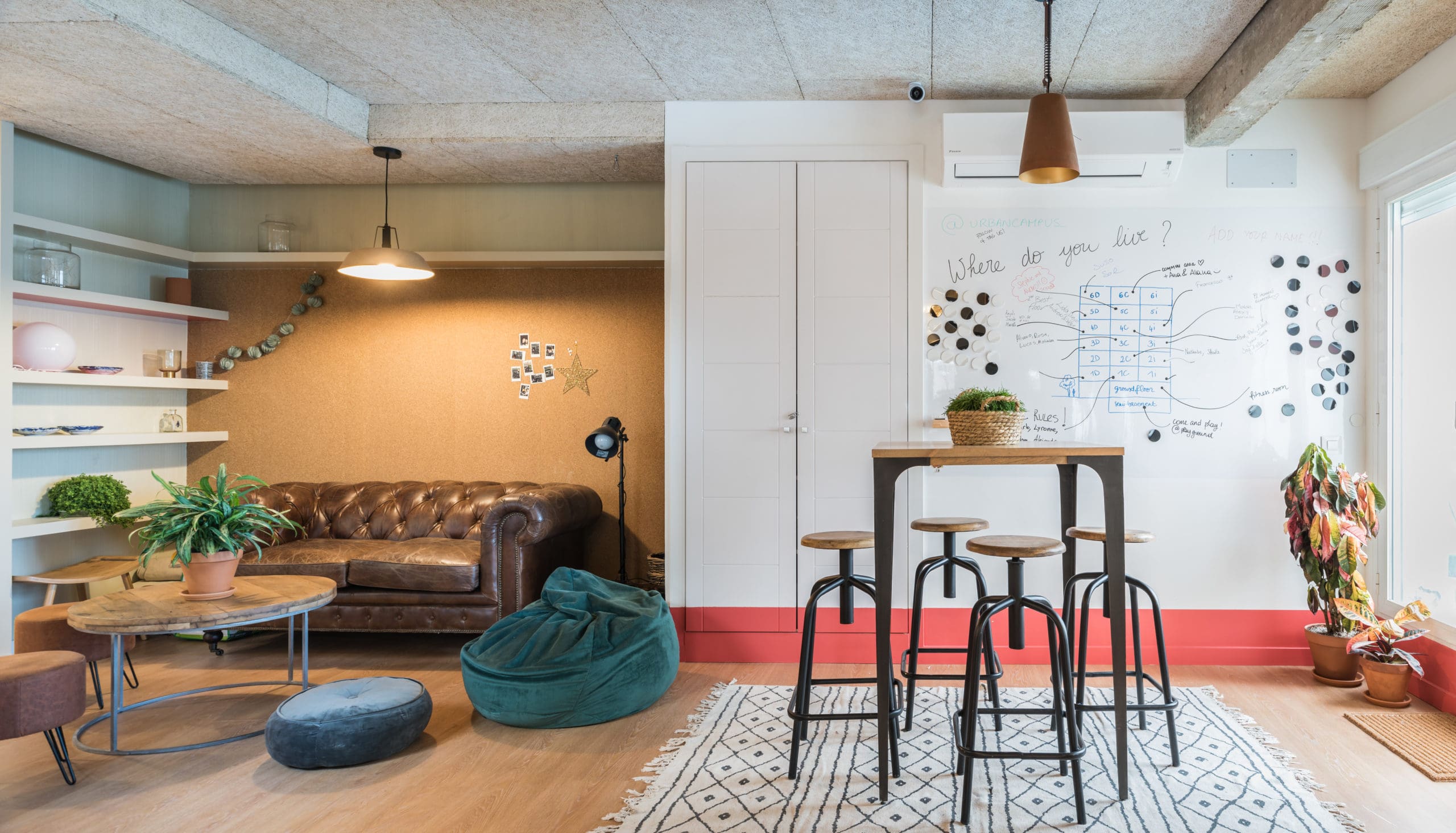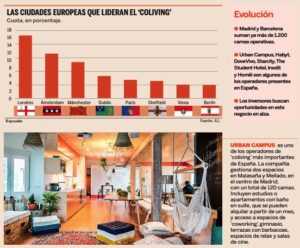Urban Campus fue mencionado en Diario Siglo XXI en un nuevo artículo que destaca las diferencias principales entre Coliving vs pisos compartidos, dos conceptos de alquiler que son confundidos frecuentemente.
Haz click aquí para leer el artículo completo en español.
English version
Coliving offers people a comfortable place to stay and create a social life with other users with similar interests. With a global expansion, this new residential model differentiates itself from flat-sharing because it offers the possibility of sharing common spaces while allowing users to enjoy their own privacy, living in an apartment, bedroom or studio with a private bathroom.
THE PRIVACY AND COMFORT OF A PRIVATE BEDROOM, STUDIO OR APARTMENT GENERATES INTEREST AROUND COLIVING
This type of service is characterised because tenants share the whole building and its common areas like gyms, coworking spaces, terraces, movie areas, living rooms, kitchens and other spaces while keeping their private space, always with a private bathroom.
This concept, is managed by Urban Campus in Spain, a leading company within the Coliving real estate market that is often confused with traditional flat-sharing, although these are two different options.
In flat-sharing, residents interact, on many occasions, in the same bedroom and often share a bathroom. Generally speaking, these are old flats that have been reconditioned to fit leasing purposes. Nevertheless, they do not have a functional distribution of the space, nor offer comfort to the tenant, something that is indeed perceived in Coliving.
For professionals, looking for a place to live can become a tedious and discouraging task as they may need to share a bedroom or flat with strangers, opposite personalities or who are simply living completely different moments in their life. With the arrival of Urban Campus Coliving, this process is carried out easily online.
COLIVING SPACES ARE DEVELOPED IN THE BEST NEIGHBOURHOODS TO GUARANTEE SAFETY AND ACCESSIBILITY
Urban Campus selects its Coliving spaces in the best-located neighbourhoods, guaranteeing safety and accessibility to the whole city. Tenants who will live in the space are carefully selected, ensuring a fit with the rest of the Coliving’s residents and offer the best experience living in a like-minded community of professionals with similar needs and interests.
In the type of contract and booking process, we can find another big difference between Coliving and flat-sharing.
While Coliving tries to simplify the entire booking and leasing process, flat-sharing tend to overcomplicate the tenants’ experience with endless requirements that landlords demand before agreeing to sign the leasing contract. They also usually ask for excessively high deposits that serve as a guarantee, while in many cases also adding an agency fee.
On the other hand, Coliving presents a different scope that makes this process way simpler. At Urban Campus, the whole leasing process, from the booking to the contract’s signing is as flexible as it gets, as the minimum stay duration is one month and is done online through the company’s user-friendly booking platform. Here, all the administrative details are clearly shown in a transparent manner.
This residential concept is inspired by a harmonious distribution of the building and private spaces, to foster social interaction and maximise common areas. Coliving provides all the necessary equipment to move in and start living, even bed linens and towels if required.
All of these advantages offered by Coliving compared to the flat-sharing model, have made Coliving a new tendency when it comes to leasing a new living space to begin a new life concept.

